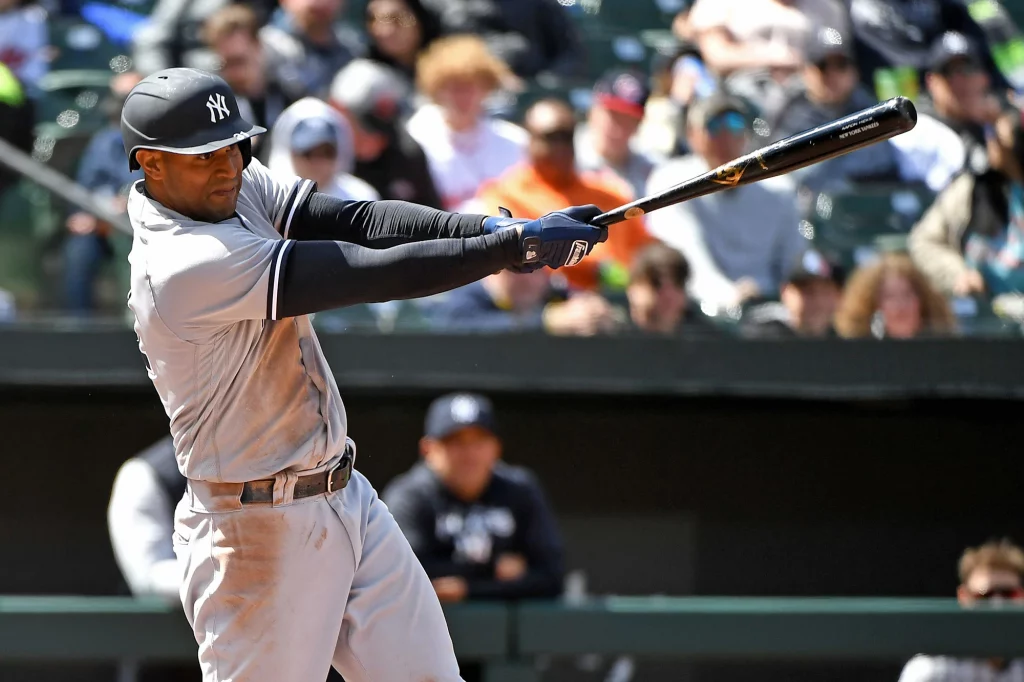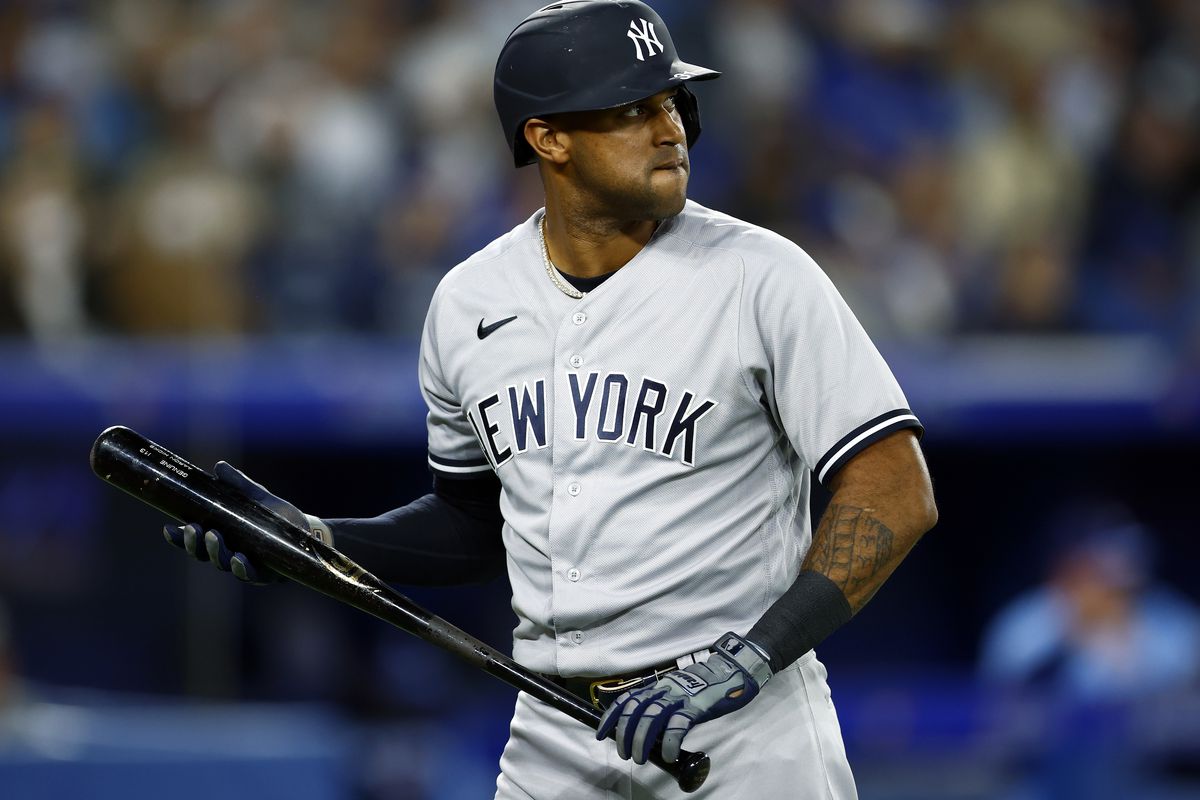The New York Yankees have long been known for their legacy of success and their high-profile roster, but it seems that not every player is content with their role on the team.
Centerfielder Aaron Hicks, once touted as an essential part of the Yankees’ future, now finds himself at a crossroads, expressing his frustrations publicly and seemingly imploring the team to consider trading him. This recent revelation raises questions about the dynamic within the team and the best course of action for both Hicks and the Yankees organization.
Aaron Hicks signed a lucrative seven-year deal with the Yankees in 2019, a move that suggested he would maintain the high level of play he demonstrated in 2018 for the foreseeable future.
However, it appears this gamble has not paid off, as Hicks has only played over 60 games in a season once since signing the contract. Plagued by injuries and failing to meet expectations, Hicks has seen his position in the center field taken by Oswaldo Cabrera at the start of the 2023 season. To add insult to injury, the Yankees opted to start career infielder Isaih Kiner-Falefa over Hicks recently, a decision that must have stung.

How Has Aaron Hicks Voiced His Discontent?
Hicks’ dissatisfaction with his current role within the Yankees has become increasingly evident, culminating in a candid interview with The Athletic. In it, he confessed to having “no idea what [his] role is,” expressing his desire to “play the field” and “play every day.” It’s clear that coming off the bench and facing closers all day doesn’t align with Hicks’ aspirations, leaving both him and the Yankees in a precarious situation.
Aaron Hicks says he doesn't know what his role is right now w/ the Yankees.
"I just want to play. I don’t want to come off the bench and face closers all day. I want to play the field, I want to play everyday, and it’s just what I want to do." https://t.co/rKp3X8z0Sr
— Brendan Kuty 🧟♂️ (@BrendanKutyNJ) April 2, 2023
Yankees Manager Aaron Boone acknowledged Hicks’ concerns, stating that he would have opportunities to do “a little bit of everything.” However, it seems that such reassurances may not be enough to placate the discontented player. Boone and the rest of the team’s management must recognize the potential toxicity of Hicks’ dissatisfaction and take swift action to address the situation.
What Are the Potential Solutions for the Yankees and Hicks?
The crux of the issue lies in the fact that, at this point in his career, Hicks may not merit a position as an everyday player for the Yankees. The organization faces two potential solutions: either improve communication with Hicks, realigning his expectations, and getting him on board with their plans for the season, or explore trade options to find a more suitable environment for the talented outfielder.
Regardless of the path chosen, decisive action is necessary to maintain team cohesion and ensure a prosperous future for both Aaron Hicks and the New York Yankees.








